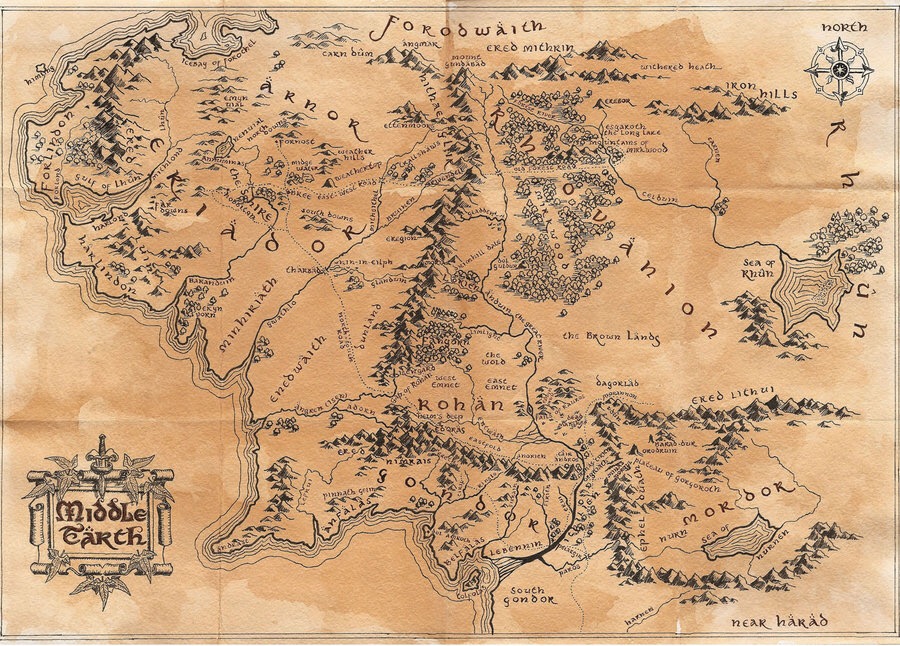
[462 words; 3 minutes]
I would not consider myself a true fantasy geek. I didn’t read much when I was younger, so I never got into fantasy until later in life. But since I’ve been an adult, most of the reading I do when I have spare time is in the fantasy genre. For me, fantasy often speaks truth better than any non-fiction.
I was thrilled to stumble onto an article entitled, “Here at the End of All Things: On Losing Oneself in the Geography of Fantasy Worlds, from Middle Earth to Westeros.” This article (be warned: it’s not short!), written by a fantasy “insider,” considers the importance of maps and geography for fantasy worlds. He looks at several key examples — from Middle Earth to Westeros, as the subtitle proclaims — to show how geography is about much more than geography, for fantasy writers. Places and regions bear significance for the story. The East is often the place of destination for overcoming enemies; the West, the place of the “sea,” the place that goes beyond the end of what is known. Geography defines character — being from the Shire defines one’s character in ways that cannot ever be changed. Journeying from one place to another is about more than simply moving physically across a map; it involves character formation.
Narratives within the Bible, and the whole Bible itself, make use of this aspect of geography and travel. Though biblical narrative is not fantasy literature, it certainly values the multivalent meaning of journeying.
For example, as New Testament scholar Joel B. Green points out regularly in his commentary on Luke, Jesus and the disciples are “on the way to Jerusalem” for most of the Gospel. Yet, this journey could have been covered in a much shorter space. And it could have been covered more directly; often in Luke, the traveling crew wanders in and out, up and down, rather than heading straight from Galilee to Jerusalem. Green indicates that this is because the journey was about more than geography. Rather, it was a journey of formation. The disciples were on a theological journey. They were being formed in their view of who God is, and what it means to follow God.
I embraced a long time ago the value of considering discipleship as a journey. When I became a follower of Jesus, I recognized that I entered onto a path. Sure, there are defining moments along the way. And there might be a Point A and a Point B. But more often than not, the focus will not be on the destination, but on the journey itself. I become like Christ as I walk daily in ways that reflect his own character. I am being shaped.
Perhaps stated better: the destination requires of me a certain type of journey.